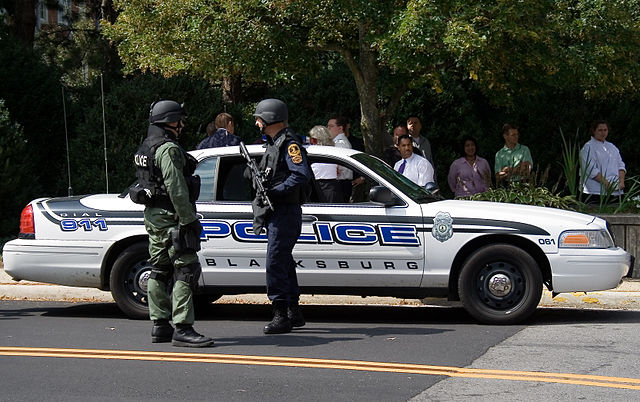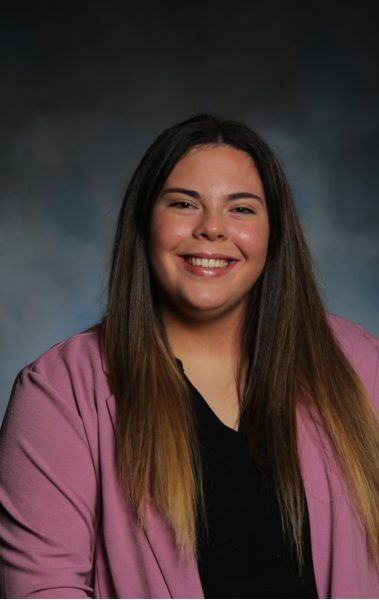Many Public Universities Arm Campus Police Officers
January 27, 2015
PITTSBURGH—Most public universities arm their campus police officers and are giving them full arrest powers, and private schools are quickly following suit, according to a new report by the U.S. Department of Justice.
The trend is reflective at colleges and universities in Western Pennsylvania, according to spot checks this week by the Pittsburgh Post-Gazette.
The Justice Department’s Bureau of Justice Statistics surveyed more than 900 four-year institutions during the 2011-2012 school year. The survey found the number of institutions using sworn officers increased to 77 percent from 75 percent since the 2004-2005 school year, and the number of armed officers increased to 75 percent from 68 percent during the same period.
Most of the armed officers are authorized to carry an array of weapons, including firearms, pepper spray and batons, the report said.
Edward McSheffery, chief of the California University Police Department in Pennsylvania, said self-sufficiency is important in today’s society.
“Having the ability to control situations with a quick response limits the potential for escalation,” he said.
CU has employed sworn and armed police officers since 2007, and currently has 18 full-time officers along with three full-time security guards.
The police officers are certified under state Act 20 requirements and must qualify twice a year on handgun, shotgun, patrol rifles and Tasers, the chief said.
At the University of Pittsburgh, about 100 sworn and armed officers serve the campus, said university spokesman John Fedele. He pointed to the shootings at Western Psychiatric Institute and Clinic of UPMC in Oakland in 2012 to illustrate the effectiveness of armed campus officers. Three Pitt police officers responded after John Shick shot eight people, killing one and injuring seven. One of the officers then shot and killed Shick.
According to the survey, the average training requirement for sworn officers during the 2011-2012 school year was 1,027 hours before employment.
Fedele said Pitt police officers, after they join the force, have to qualify with their firearms twice a year and receive active shooter training once a year.
At Carnegie Mellon University, police officers undergo “literally thousands of hours of training every year,” said the university’s chief of police, Tom Ogden. They train to qualify in firearms use, CPR and first aid, dealing with blood-borne pathogens and respirators, and using expandable batons.
According to the Justice survey, 92 percent of public institutions employed sworn officers, more than twice that of private institutions, which fell at about 38 percent. Similarly, 91 percent of public universities used armed officers, more than double the numbers of private universities, which were at about 36 percent.
But private universities in the Pittsburgh region fall within the minority, employing small forces of sworn and armed police officers.
Point Park University created its police force in 2011, and now has 12 sworn and armed police officers.
Point Park felt the timing was right, said Jeffrey Besong, chief of police and assistant vice president of public safety at the university.
“There was no pressure. However, parents are concerned,” he said. “The first question is, ‘How safe is the campus?’ and ‘How are you going to protect our loved ones?’”
Duquesne University, also a private school, has had police officers since “at least the 1960s,” said Tom Hart, director of public safety. Currently, the university has 32 armed, sworn officers and nine security officers.
Hart said training methods are constantly being changed, adapted and updated to employ new equipment and tactics.
“A well-trained, experienced police and security team using a number of law enforcement tactics is able to provide strategic, situation-appropriate responses as it works to ensure ongoing security and safety,” he said in email.
Police officers aren’t new to CMU, either, which also has employed sworn and armed officers since the mid-1960s, Ogden said. Currently, 23 sworn and armed officers and 41 security officers serve the university.
“You can’t do traffic stops or enforcement without being armed,” said Ogden. “Being armed allows you to do the full spectrum of police work.”
According to the report, about seven in 10 campus law enforcement agencies had agreements or understandings with outside law enforcement agencies. When major crime occurs, CMU relies on Pittsburgh police for backup, said Ogden.
Other campus police departments also work with city police and with each other, when necessary, the public safety officials said.
Carlow University, whose main campus is in Oakland, employs 10 sworn and armed police officers. The university has used police officers since 2002. They work with the Pittsburgh police, University of Pittsburgh police and CMU police when needed, since the campuses are so close.
“Oakland is one of those communities where if something happens on one campus, it can affect other campuses as well,” said Carlow spokesman Drew Wilson.
———
©2015 Pittsburgh Post-Gazette
Visit the Pittsburgh Post-Gazette at www.post-gazette.com
Distributed by Tribune Content Agency, LLC








